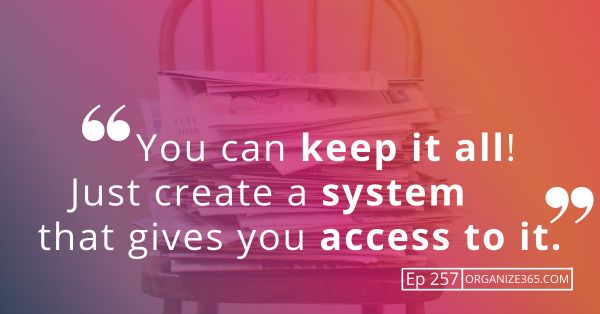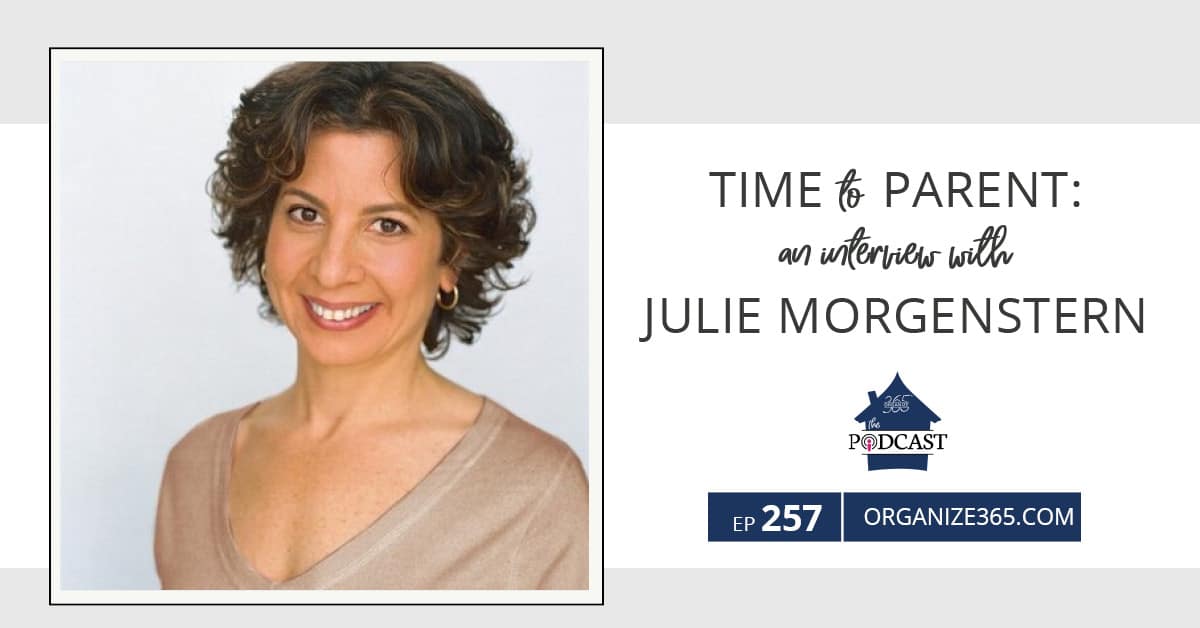
I am so thrilled to share with you my interview with Julie Morgenstern, someone I have admired for years.
Julie Morgenstern, to quote her site, “is an organizing & productivity consultant, New York Times best-selling author, and speaker. She has shared her expertise on countless TV and radio outlets, including The Oprah Winfrey Show, CNN, The Rachael Ray Show, The Today Show, Good Morning America, and The National Public Radio. She is quoted and featured regularly in a wide variety of publications and has been seen in The New York Times, Time Magazine, USA Today, Business Week, The Wall Street Journal, Best Life, O Magazine, Martha Stewart Living, Glamour, Cosmopolitan, Fitness Magazine and Men’s Health.”
As if that resume isn’t impressive enough, Julie has also published seven successful books and personally helps people get organized through coaching services and workshops.
She is a force to be reckoned with, for sure, and it was a pleasure to chat with her.
On Home Organization
Julie’s book, Organizing from the Inside Out, was one of the first organization books I read after seeing her on Oprah.
She said so many things that resonated with me, including my anthem that it’s not about the containers. You can (and many do) spend hundreds (thousands!) of dollars on containers, put your things in them, and still be just as disorganized as you were when you started.
Another thing we talked about that rang so many bells? Decluttering is great, but it’s not organization. You can be a minimalist and still be disorganized.
Just to recap, you can buy nothing, keep all of your belongings, and still be organized.
I can’t possibly pick a favorite thing that Julie said, but this one is up there: “Organizing is not the same thing as decluttering. You can keep it all, if you want! Just create a system that gives you access to it.”
It is a puzzle to be solved!
What is Work?
After chatting about Julie’s background a bit, we circled around this idea that work is not just what you do for a living, but what you choose to do with your life.
I’ve often said, when talking about my Friday Workboxes, that you work doesn’t have you pay you money. In fact, your work can be volunteering, or a hobby or passion that you do just because it lights you up.
Julie agreed, and even offered up some tough love: You need to protect your work.
That means you need a set time and a set place to do your work.
Sure, if you are in direct sales, you can work from your van at soccer practice. If you telecommute for a corporation, you can work in your pajamas from your bed. If you are the PTO president, you can plan the next fundraiser from your phone in the drive through.
But it doesn’t mean you should, or at least it doesn’t mean that you should all the time.
Because eventually, you will be interrupted. Practice will get out early, the dog will need to be fed, the coffee will be delivered. And that will disrupt the flow of your work and you won’t be as productive as you think you should be.
And mamas? That means you need childcare during your work time.
if you are looking for permission to arrange for a few hours a week of childcare, consider it granted.
That doesn’t mean shelling out an hourly rate for a babysitter, necessarily. Explain your intention to your family, your friends, your colleagues. Arrange for a swap in childcare with another mom so that you both can have some time to fill your own cup.
What is work? Work can earn you an income, but work is a source of enormous human fulfillment. You can funnel your interests, talents, and skills toward something that builds you up as an individual.
You can have a job that pays, but you still need something that appeals to your skills and talents, if they aren’t the same thing.
Time to Parent
In Julie’s latest book, Time to Parent, Julie addresses one feeling that seems to plague parents everywhere, at least some of the time: overwhelm. How do we give our full attention to our children without completely sacrificing our own identity?
Being the professional organizer she is, Julie approaches this question systematically and logically.
When raising our kids, we must provide for them in four ways:
- With money, earning enough to buy them things they need;
- By organizing the activities, home, and logistics of navigating through life;
- By relating to them and fostering our relationships with them;
- By teaching them the life skills they will need to become an independent adult.
In order to do that, we as parents must have:
- Sleep (and don’t exchange your sleep for the other needs you have, like staying up late just to have some time to yourself);
- Exercise
- Love
- Fun
Did you read that, mamas? Those are needs.
When we flip the script on parenting and internalize that we need those four things, we have a little bit of a puzzle to solve. How can I possibly bring in more money, to pay for childcare, so that I can go have fun? Is it actually possible to not feel guilty about dropping the kids off at the gym daycare? How can I teach my kids life skills that I myself have not mastered?
Roadmapping these answers is where Julie really shines. I encourage you to read her book for more.
It was a true joy chatting with her!




